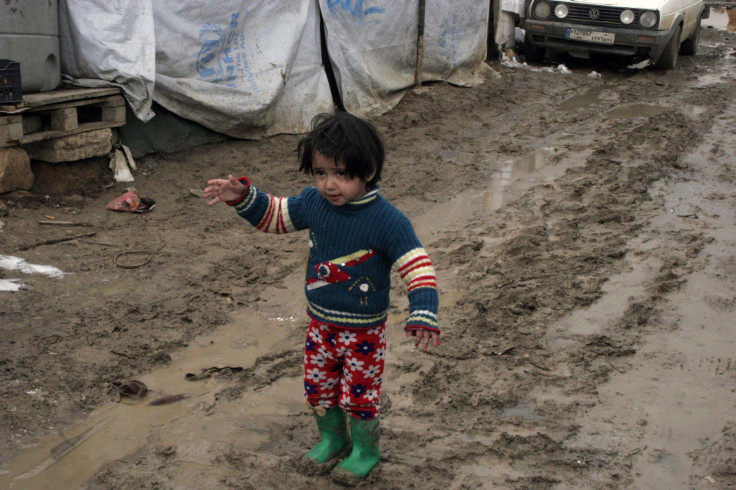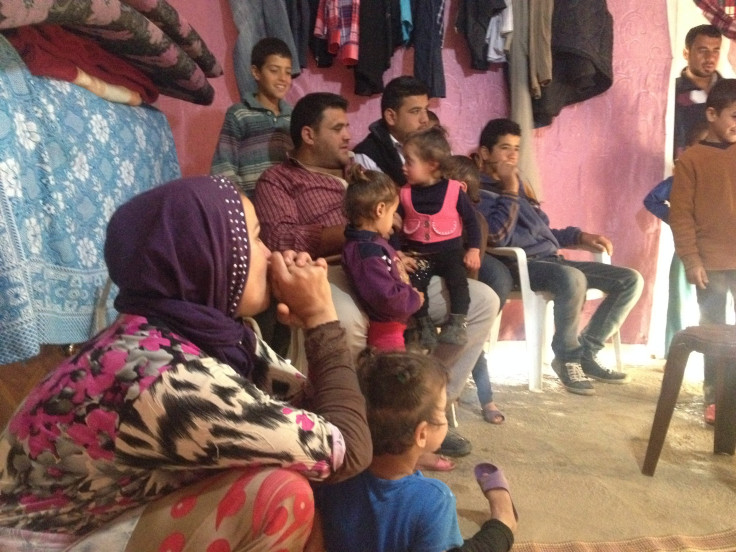For Syrian Refugees And Lebanese In Lebanon, The Road To Europe Is The One Less Traveled

TRIPOLI, Lebanon — By anybody’s reckoning, Ghayth Tawashi has made a success of himself. The urbane 40-something owns his own construction business and employs two maids to take care of his home and four children in Tripoli, Lebanon’s second-largest city. But that wasn’t enough for Tawashi. He wanted a slice of the European dream, where, he had heard, Syrian refugees fleeing war were given houses, jobs and, most enticingly, citizenship.
“I thought that there was a lot of money. I thought I would get money in a big bag. I went for my kids. I wanted them to get a nationality that would make them respectable and untouchable and go to good schools,” Tawashi told International Business Times.
There was one problem — Tawashi and his family weren’t refugees, but a simple lie would take care of that. Tens of thousands of those fleeing the neighboring civil war in Syria were entering Europe without passports or the necessary documentation. Tawashi and his family could do the same.
So, five months ago, Tawashi gathered up his wife, children and maids and flew to Izmir, Turkey. There, they reinvented themselves as Syrians, handing over their passports on arrival to Izmir’s brother, who would then fly back to Lebanon.

Days later, Tawashi and his entourage had joined the stream of others who were hoping to make the illegal journey into Europe. Wearing bright orange life jackets, the group hid in a forest off the Aegean coast waiting to begin the perilous crossing to prosperity.
Last summer, ferry boats to Turkey were leaving the port in Tripoli nearly every day, sometimes filled with up to a thousand people bound for Europe. Among the Syrians fleeing their war-torn homeland were hundreds of Lebanese nationals, who, like Tawashi, saw the mass exodus of Syrians as an opportunity to seek a better future.
Mohammad Hussein Khoder was one such Syrian who saw Europe as a way out for his wife and four daughters. Since fleeing the Syrian province of Homs four years ago, he has paid $250 a month to rent a small square of land in Tripoli’s Mina district where his family has pitched a two-room tent.
Khoder and Tawashi lived only 10 minutes away from each other but they inhabited different worlds — different worldviews but with the same dream of Europe. A dream that was, for both men, never to be realized.
When Tawashi met IBT in Tripoli, wearing a crisp white polo shirt and rainbow-tinted sunglasses, he and his family had returned from Sweden two days earlier, vowing never to leave Lebanon again. The entire journey cost him roughly $30,000.
“I thought I would find something better — something good — but when I arrived I saw it was worse than here,” Tawashi said. “My family is so happy to be back. My wife was threatening to throw herself in front of a train if we stayed. My kids were so happy when we reached the airport, they couldn’t believe it was real.”
In the summer of 2015, everyone in the Lebanese port city was talking about the benefits of being smuggled into Europe. Friends and relatives in Tripoli told Tawashi that when he arrived in Sweden, the government would provide him with a house and immigration papers. Sweden had a policy of accepting all refugees and migrants while their applications for asylum were pending, but at the height of the refugee crisis last summer, the country was receiving thousands of applications a day and could no longer accommodate the influx.
“There were people traveling from all over Lebanon,” Tawashi said. “People here started to show off, saying, ‘Oh, I have the good number [of someone] to take you to Greece,’ or friends and neighbors would say, ‘I have the number of the one in charge [of smuggling].’ ”
Tawashi’s family sought out the services of a middleman in Turkey, who would only give the money to the smuggler once Tawashi had confirmed their arrival on one of the Greek islands. From there, they walked and took trains and buses through Serbia, Croatia and Slovenia until they reached Sweden.
In Sweden, they retrieved their Lebanese passports, which had been sent to Europe with a family friend traveling from Lebanon.
“The trip was not the problem; the problem is when you reach where you’re going,” Tawashi said. “There’s no house, there’s no papers, there’s no civilization there for your family.”
Tawashi and his family were placed in camps or rented their own accommodation throughout the journey. Sometimes there were 16 people to a room, he said.
“The smell was so bad and life was so bad,” he said. “I couldn’t do anything. I couldn’t drive or use the train or anything. I just had to stay wherever they put me and they would give us money for food and cigarettes.”
Four days after arriving in Sweden, Tawashi decided he would go back to Lebanon. He called his twin brother, who was planning to be smuggled to Europe with 16 other Lebanese families, to warn him that the stories they had heard were not true. He was too late — his brother left for Germany that day, where he stayed one week before returning to Lebanon as well.
Local sources estimate that at least 500 Lebanese families have made trips to Europe similar to Tawashi’s, but the Migrant Offshore Aid Station, a charity that provides search and rescue aid to migrants and refugees escaping by the sea, told IBT it did not have any data related to Lebanese nationals crossing the Aegean Sea, and that it had “not come across any” in their work. This discrepancy, Tawashi says, is because Lebanese citizens are traveling without their passports and pretending to be Syrian.
The main reason Lebanese were leaving was financial: The refugee crisis has weakened an already struggling Lebanese economy. In 2013, the World Bank estimated the refugee crisis would have cost Lebanon $2.6 billion and put roughly 170,000 Lebanese citizens below the poverty line by the following year.
Lebanon’s economic woes do not stem solely from the refugee crisis. Officially, the country’s unemployment rate stands at a quarter, but roughly half of Lebanon’s population that is eligible for work cannot find steady jobs. Youth unemployment now stands at 35 percent, a 50 percent increase since 2011.
Makram Malaeb, the former head of the Syrian crisis response for Lebanon’s Ministry of Social Affairs, described the situation as a “race to the bottom between the poorest Syrians and the poorest Lebanese.”
It was a race that Khoder wanted no part of. He, too, had heard the rumors about the benefits of living in Europe. A relative had been granted asylum in Ireland and she sent him WhatsApp messages almost daily saying how happy she was and how many more opportunities she had.
Khoder, like most other Syrians who had lived in Lebanon for the majority of Syria’s war, knew he could not afford to pay the smugglers’ costs to go to Europe. He estimated the total cost of the trip would be $8,000, far too high for someone who was not able to work in Lebanon legally.
His only hope of reaching Europe was by applying through the United Nations High Commissioner for Refugees (UNHCR). But, of the nearly 900,000 Syrians seeking asylum in European countries over the last five years, only a lucky few were among the 1.3 million refugees registered with UNHCR in Lebanon.
“Every time [UNHCR officials] visit the [refugee] camp I ask them and they say, ‘We will call you, don’t ask us,’ ” Khoder said. “It’s something that happens by luck.
“I have told them everything so that they can let me leave. I even said I had a fight with a Lebanese guy so I had to leave, but I got the same answer.”
UNHCR has yet to reach out to Khoder, but he hasn’t given up hope, he said. He knows the risks of a failed trip to Europe are much higher for his family than for Tawashi’s.
With their passports in hand, Tawashi was able to book flights for his family’s return to Lebanon. He has since been working on reopening his business. For Khoder, leaving Lebanon means never returning. UNHCR is no longer allowed to register new refugees, which means Khoder and his four young daughters would be faced with two choices: begin again in Turkey or return to Syria.
© Copyright IBTimes 2024. All rights reserved.





















